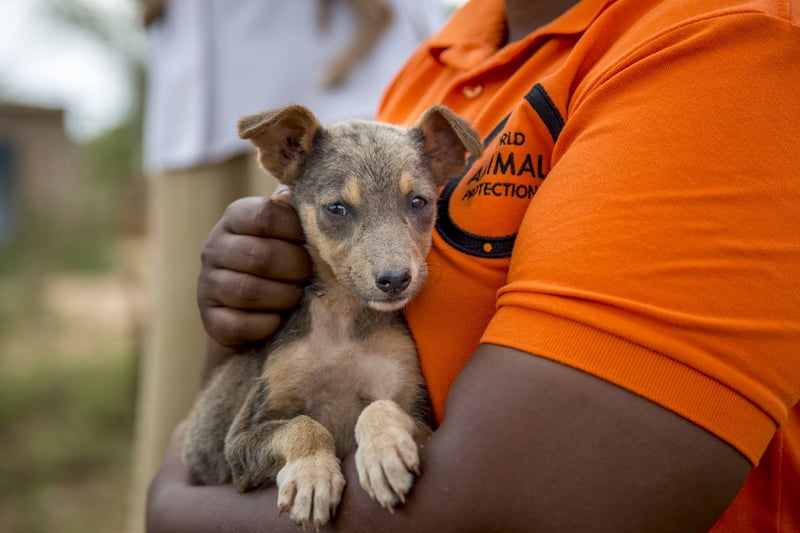
Fear of stray dogs
Press release
How to stay safe in countries with rabies. Many of us fear stray dogs when we are holidaying abroad. This is understandable given that 99% of human rabies cases are transmitted by dog bites, resulting in the deaths of around 59,000 people every year.
According to the World Health Organisation (WHO), dog bites account for over 50% of animal related injuries in people and mostly children who are travelling. Dog bites may lead to governments cruelly killing dogs either in fear of rabies or to reduce numbers of stray dogs.
Rabies is a fatal viral infection that is almost 100 per cent preventable. And although canine rabies has been eliminated in the UK and across the developed world, it is still a threat in countries like India where 17.4 million dog bites are reported every year resulting in the death of over 20,000 people.
Pankaj KC, Head of the Better Lives for Dogs campaign at World Animal Protection said: “What we know is that mass dog vaccination and humanely managing stray dogs works. It’s the only proven solution for controlling rabies, in both dogs and humans. This year we reached our one millionth vaccination, and it doesn’t stop there. We will continue to work with governments to help protect both animals and people until rabies is a thing of the past.”
“Through our Better Lives for Dogs campaign, we are leading the way to end the unnecessary deaths of millions of dogs, every year, caused by our fear of rabies or dog bites. We also want to educate tourists and communities on preventing bites and responsible dog ownership.”
How to avoid being bitten:
- Check with a doctor whether you need a rabies vaccination before you travel. Centre for Disease Control’s website or your local government’s website provides up to date travel advice
- It’s important to leave dogs alone, especially when they are eating, sleeping, with their puppies, or when they are in a small space. Treat all dogs with respect. Be quiet and calm around them
- In the heat of the day, dogs will find somewhere cool to rest. Keep a lookout for dogs who may be taking shelter in unexpected places, as you may startle them
- If a dog approaches you, stay still, quiet like a tree and avoid eye contact. Don’t run or throw anything. A dog will lose interest and leave you alone.
- If you do get bitten, wash the wound straight away with soap and water. However small the wound is, or even if the skin isn’t broken, find a first aid centre, where you can get advice on whether you need post-exposure rabies vaccination, a tetanus jab or any other treatment
- Do not feed stray dogs while you’re on holiday – even if a dog is begging for food. Although some dogs may seem like they are alone, many have owners or local carers who let them roam free during the day
World Animal Protection has been working to prevent rabies since 2011, when it launched its first vaccination programme in Cox’s Bazaar, Bangladesh. Over 3,000 dogs were vaccinated, resulting in a national vaccination programme scaled out across Bangladesh, with 240,000 dogs vaccinated so far.
We are also collaborating with the World Health Organisation (WHO), World Organisation for Animal Health (OIE) and the Food and Agriculture Organization of the United Nations (FAO) to eliminate rabies without culling dogs by 2030.
ENDS
Note to editors
- For an interview with a spokesperson, contact Kai Akram kaiakram@worldanimalprotection.org +44 (0) 7939 029 006 or Bev Boyle bevboyle@worldanimalprotection.org +44 (0) 7239 0563 / +44 (0) 7968 415 856